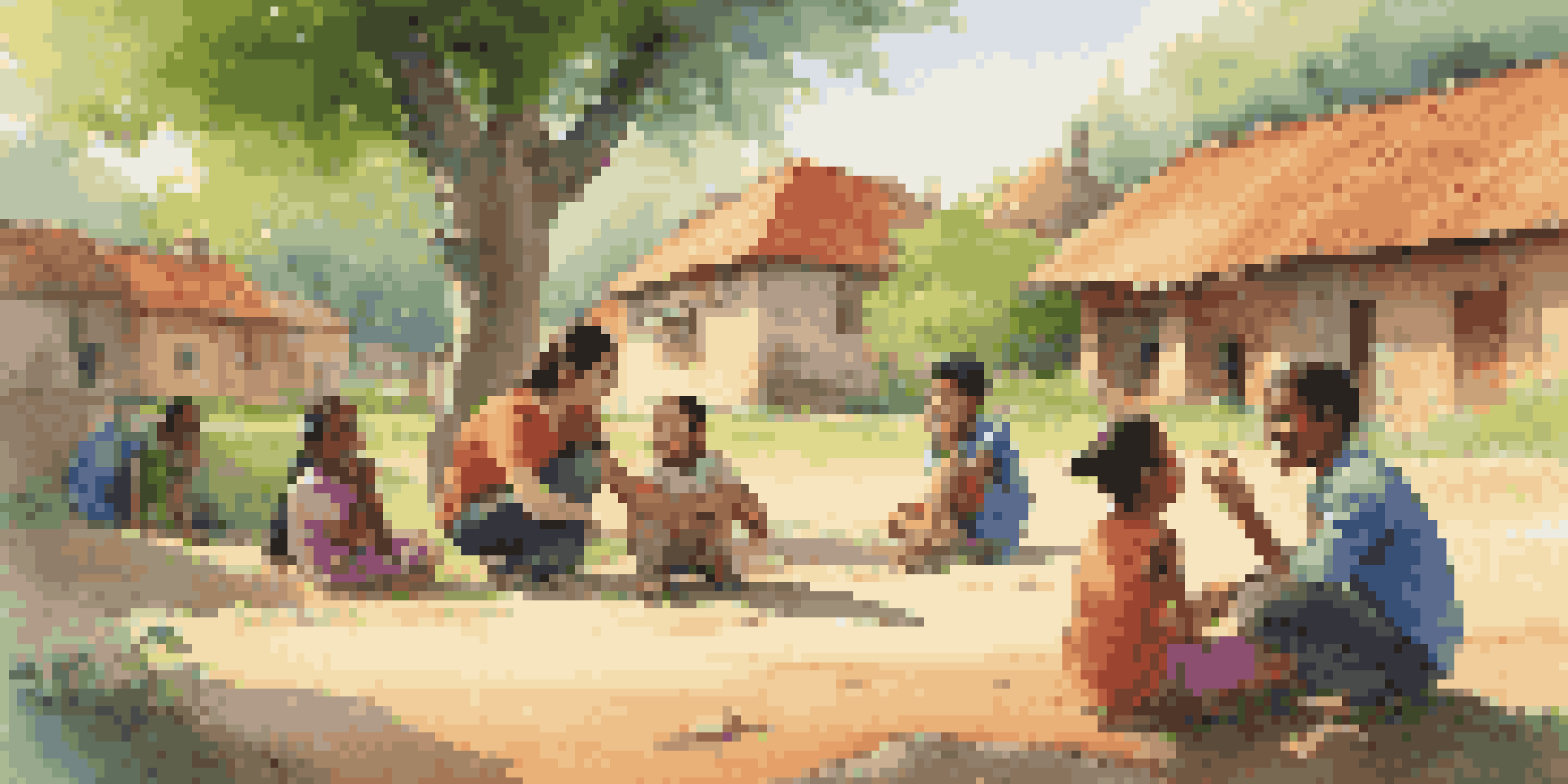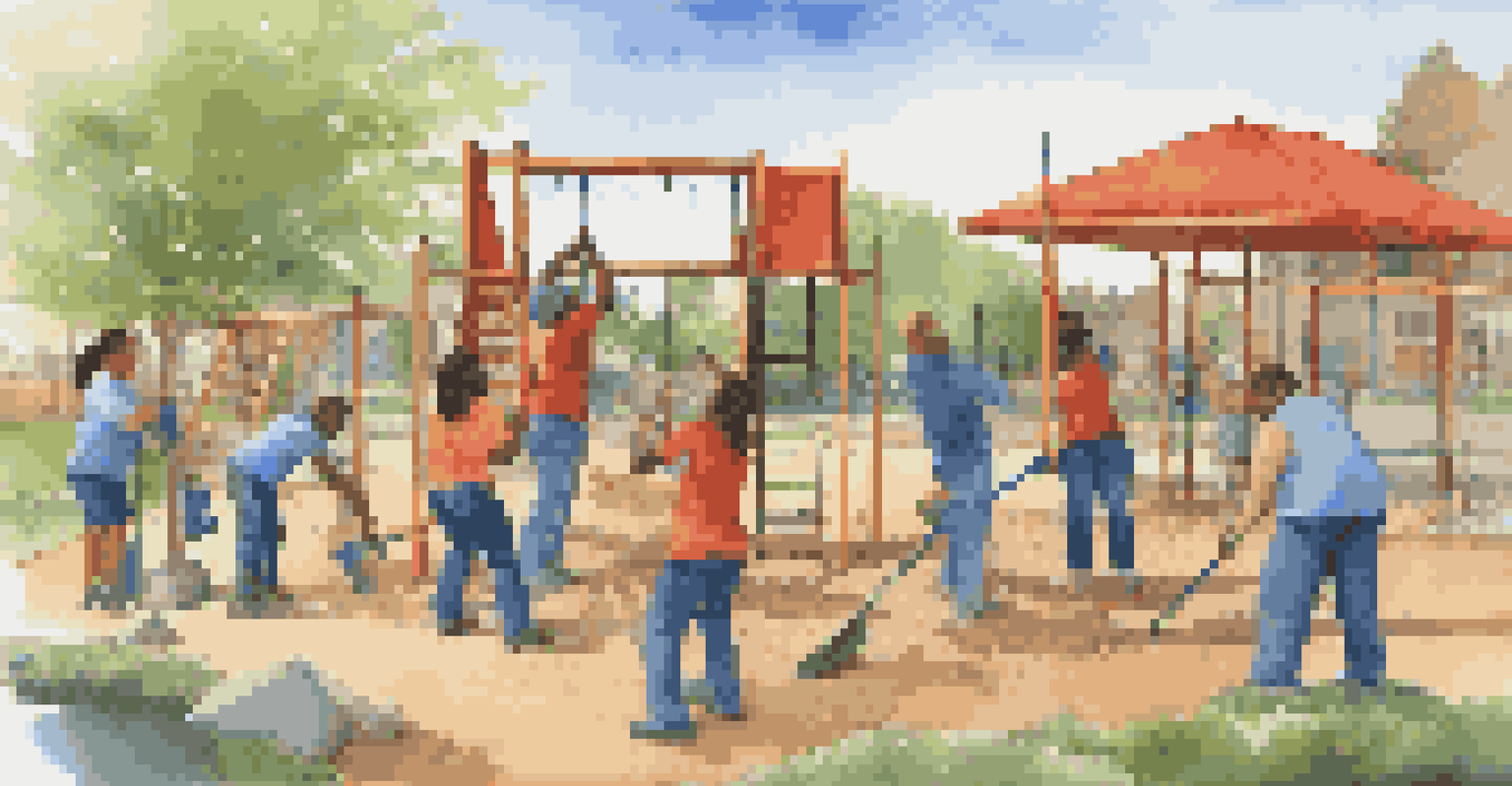The Importance of Language Skills in Volunteer Travel

Understanding the Role of Language in Volunteer Work
Language is more than just a communication tool; it's a bridge to connection. When volunteering abroad, speaking the local language can foster deeper relationships with the community you’re serving. This understanding can transform a simple task into a meaningful interaction.
Language is the road map of a culture. It tells you where its people come from and where they are going.
For instance, imagine working on a community project in a remote village. If you can communicate in the local language, you not only gain trust but also learn about the culture and needs of the people firsthand. This insight can help you tailor your efforts to be more effective.
Moreover, understanding the local dialect can help you navigate social nuances, making your volunteer experience richer and more rewarding. It's not just about speaking; it's about connecting.
Building Trust and Rapport with Local Communities
Trust is essential in any relationship, especially when volunteering in unfamiliar territories. When you show effort in speaking the local language, it signals respect and willingness to engage. This can break down barriers and open doors to authentic relationships.

Consider a scenario where a volunteer arrives in a community and speaks even a few words in the local language. The locals are likely to respond positively, feeling appreciated and valued. This mutual respect lays the groundwork for collaboration.
Language Builds Community Trust
Speaking the local language signals respect and fosters authentic relationships with the community.
In essence, language skills can transform you from a stranger into a welcomed guest, allowing for more impactful interactions and lasting connections.
Enhancing Cultural Understanding Through Language
Language is intricately tied to culture. By learning the local language, you gain insights into cultural practices, traditions, and values that may not be easily conveyed in English. This understanding enriches your volunteer experience and helps avoid cultural faux pas.
The limits of my language mean the limits of my world.
For example, understanding specific phrases or idioms can give you a deeper appreciation for local humor or expressions of emotion. It’s like having a backstage pass to the cultural performance that the community puts on every day.
As you immerse yourself in the language, you become more attuned to the subtleties that define the community, allowing you to contribute more meaningfully.
Improving Communication in Diverse Environments
Volunteer travel often involves working with diverse groups, including fellow volunteers and local organizations. Effective communication is key to ensuring everyone is on the same page and working toward common goals. Language skills can bridge gaps that might otherwise hinder collaboration.
When everyone can communicate effectively, tasks can be executed more smoothly, minimizing misunderstandings. For instance, a construction project can progress faster when instructions are clearly understood by all team members.
Language Enhances Cultural Insight
Learning the local language provides deeper understanding of cultural practices and nuances.
Thus, language proficiency becomes a vital asset, enhancing teamwork and fostering a sense of unity among diverse participants.
Navigating Challenges with Language Proficiency
Every volunteer experience comes with its own set of challenges, from logistical issues to cultural misunderstandings. Having language skills can empower you to tackle these challenges head-on. Whether it's asking for directions or clarifying project details, communication eases the process.
Imagine trying to coordinate a community health workshop without understanding the language. Miscommunication could lead to wasted time and resources. However, if you can converse in the local language, you can adapt quickly and address any challenges effectively.
Being equipped with language skills allows you to be more resourceful and responsive, ensuring a smoother volunteer experience.
The Personal Growth that Comes from Learning Languages
Learning a language is not just about practical communication; it’s a journey of personal growth. Acquiring new language skills can boost your confidence, enhance your problem-solving abilities, and broaden your perspective. This personal development enriches your volunteer experience.
As you navigate the challenges of learning a new language, you also learn patience and resilience. Each small victory, like successfully ordering a meal or sharing a joke, lifts your spirits and encourages you to keep going.
Language Skills Drive Lasting Impact
Effective communication through language skills allows volunteers to create meaningful and sustainable change.
Ultimately, the effort you put into learning the local language reflects your commitment to the community and enhances your own journey of self-discovery.
Creating Lasting Impact Through Language Skills
The culmination of language skills in volunteer travel is the lasting impact you can create. When you effectively communicate, you’re not just sharing information; you’re building relationships that can lead to sustainable change. The more connected you are, the greater your potential impact.
For instance, a volunteer who can converse in the local language can better understand community needs and priorities, leading to projects that are truly beneficial. This tailored approach ensures that the efforts resonate with the community long after you leave.

In this way, language skills become a catalyst for positive change, empowering both volunteers and the communities they serve.
Conclusion: Embracing Language in Your Volunteer Journey
In summary, language skills play a pivotal role in enhancing the volunteer travel experience. From building trust and understanding to navigating challenges and creating lasting impact, the benefits are undeniable. Embracing the local language enriches not only your journey but also the lives of those you aim to help.
As you prepare for your next volunteer adventure, consider investing time in learning the local language. You’ll discover that the effort pays off in countless ways, opening up opportunities for connection, understanding, and growth.
So, pack your bags and your language skills, and get ready to embark on a rewarding journey filled with meaningful interactions and unforgettable experiences.